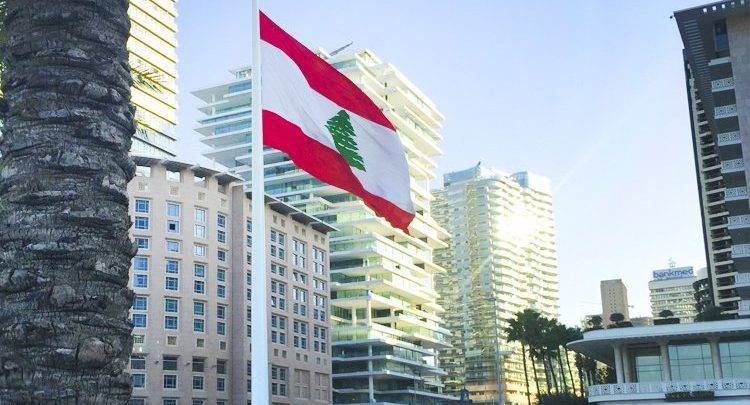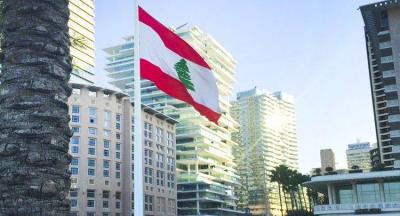The maritime border demarcation file remains stagnant, while drones from the Lebanese side continue to send provocative messages contradicting the atmosphere that should accompany negotiations, as the state remains silent, reaffirming that it is not the decision-maker. This scene was clearly expressed by the leader of the Progressive Socialist Party, Walid Jumblatt, who emphasized that "as long as we have not reached a defensive plan, Hezbollah's weapon will eventually become coordinated with the Lebanese state and under its command. Yes, the decision of war and peace lies with Hezbollah and Iran, and perhaps we are drawn into the Russian-Ukrainian war because Mr. Hassan Nasrallah's words were clear: 'No gas in the Mediterranean', which means he is replying to the West and saying you will not be able to compensate for the deficiency of Russian gas from the Mediterranean, Israel, or other locations, and Lebanon has gone with the wind."
However, Jumblatt called for resilience and challenge despite the bleak phase the Lebanese are experiencing, acknowledging that "there is no horizon," but stressing that "we must not surrender, as some research centers in America say 'Lebanon is in the hands of Hezbollah.' Yes, the decision of peace and war is in Hezbollah's hands, but there are Lebanese who are not with this direction at all, and the evidence is what happened in the elections." In the meantime, the country is drowning in its crises and the doors of relief remain shut economically, materially, and governmentally, with a public sector strike dominating the internal scene amidst paralysis that grips all state functions.
In this context, caretaker Prime Minister Najib Mikati chaired a ministerial meeting at the governmental palace to put an end to the strike, and many steps were approved, pending employees' approval to proceed with implementation, as new aid measures were linked to a basic condition of ensuring attendance for two days a week from the employee. The head of the General Labor Union, Bishara Asmar, viewed Mikati's proposal as unacceptable to the unions and insufficient for the required purpose. He called through "Anbaa" electronic to find a comprehensive approach that starts with the approval of reform laws by the Parliament and a roadmap to begin treatment, beginning with the implementation of the economic recovery plan after reviewing it by the economic bodies, as well as the approval of the banking secrecy law, capital control law, public procurement law, general budget law, movable assets law, judicial accountability, and judicial independence.
He said: "The sum of these laws paves the way for an agreement with the International Monetary Fund after consulting with workers to avoid unjust results against many Lebanese, without forgetting the deposit recovery law." Amidst the political and economic paralysis, the most important question now is about the fate of fundamental life issues that have become severely threatened, with prices of bread about to rise significantly. In this context, economic expert Louis Hbeika indicated in a discussion with "Anbaa" electronic that the country has collapsed and ended, and there is a state of confusion in crucial decisions, while at the same time, people are anxious to change this reality, and the state cannot do anything, which is why we are living in a dilemma. The paradox is that the country is paralyzed, and there is a kind of irresponsibility and lack of national sense among the officials.
Hbeika considered that there is no solution for Lebanon to emerge from its crisis except by going to serious negotiations with the International Monetary Fund and returning Arab aid and investments, calling on the MPs to elect a new president and form a government that restores confidence in the country, predicting that if the presidential election is passed smoothly, the country will start to revive at the beginning of the new year 2023, as the country cannot continue in this way. For his part, former Minister Fadi Aboud, in a conversation with "Anbaa" electronic, viewed the approach to life issues as ambiguous, asking who decides to maintain support for gasoline while lifting it from diesel? He said that if we had supported diesel, we would have saved 15 percent, leading to a decrease in the price of bread, generator subscriptions, and a revival of industry, considering that the economic issue is orphaned and no one cares about it, as those responsible for these sectors are not of interest and have no expertise in financial matters, capital control, or anything else, as they are all unfortunately "mafias."
All these crises arise while Arab and international eyes are focused on Lebanon and the path it will take on the eve of the presidential election and afterwards, and the message from the envoys to Beirut has become clear, reiterated at every opportunity: reforms, then reforms.




